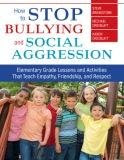TUESDAY, Feb. 14 (HealthDay News) -- When given the opportunity to have screen time, children with autism spectrum disorders typically choose television and video games over social interactive media, such as email, a new study finds .
The preoccupation with video games could interfere with the children's socialization and learning, warned the researchers, whose study appears online in the Journal of Autism and Developmental Disorders.
Autism is a neurodevelopmental disorder characterized by problems with social interaction, communication and restricted interests and behaviors. Autism spectrum disorders, or ASDs, include Asperger syndrome, which is a milder form of autism.
In conducting the study, the researchers analyzed information on more than 1,000 teens in special education classes, including those with autism spectrum disorders, learning and intellectual disabilities, and speech problems.
About 60 percent of the teens with autism spectrum disorders spent most of their time watching TV or videos, the investigators found.
"This rate appears to be high, given that among typically developing adolescents, only 28 percent have been shown to be 'high users' of television," Paul Shattuck, an assistant professor at the Brown School at Washington University in St. Louis, said in a university news release. "Television viewing is clearly a preferred activity for children with ASDs, regardless of symptoms, functional level or family status."
Moreover, 41 percent of the teens with autism spent most of their free time playing video games, the study authors found.
"Given that only 18 percent of youths in the general population are considered to be high users of video games, it seems reasonable to infer based on the current results, that kids with ASDs are at significantly greater risk of high use of this media than are youths without ASDs," Shattuck added.
In contrast, the teens with autism spectrum disorders were less likely to use email or social media.
"We found that 64.4 percent of youth with ASDs did not use email or chat at all," Shattuck said. "Kids with speech and language impairments and learning disabilities were about two times more likely to use email or chat rooms than those with ASDs."
He noted, however, use of social media increased among the teens with autism spectrum disorders as they got older and their cognitive skills improved. Cognitive is a word used to describe brain-based functions such as memory, thinking, learning and processing information.
"This proclivity for screen time might be turned into something we can take advantage of to enhance social skills and learning achievement, especially [with] recent innovations in devices like iPads," Shattuck suggested.
More information
The U.S. National Institute of Neurological Disorders and Stroke provides more information onautism.






